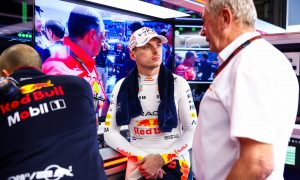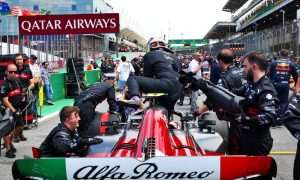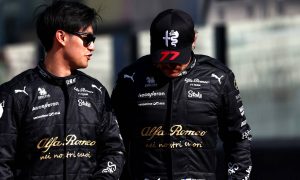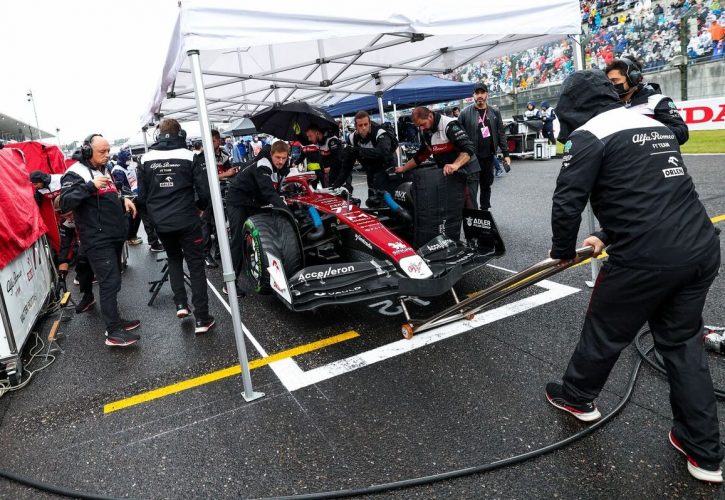
Alfa Romeo's Valtteri Bottas says race control should not have started the Japanese Grand Prix, as visibility in the thick of the field was simply too poor.
A downpour drenched Suzuka an hour ahead of the start of the race but conditions were deemed acceptable when the starting procedure kicked off, to the point where all drivers opted to launch their race on Pirelli's intermediate tyre.
However, the Safety Car was deployed at the end of the first lap when Carlos Sainz was caught out by the treacherous conditions and clouted the barrier, forcing the Spaniard to abandon his stricken Ferrari.
Aston Martin's Sebastian Vettel also spun out onto a run-off area, but the German was able to rejoin the field, while Pierre Gasly collided with a stray advertising board that damaged the front wing of his AlphaTauri and forced him to pit to change the element.
In hindsight, Bottas - who started his race from P12 but was passed by two cars on the opening lap - reckons that conditions were just not suited for racing.
"The first two laps was not race-able," said the Finn, quoted by RaceFans.com. "I’m just glad nothing happened.”
"I was surprised we started because the conditions, the visibility was so, so bad. We should have not started.
"Even the second restart I’m pretty sure from like P6, P7 backwards, it was quite risky."
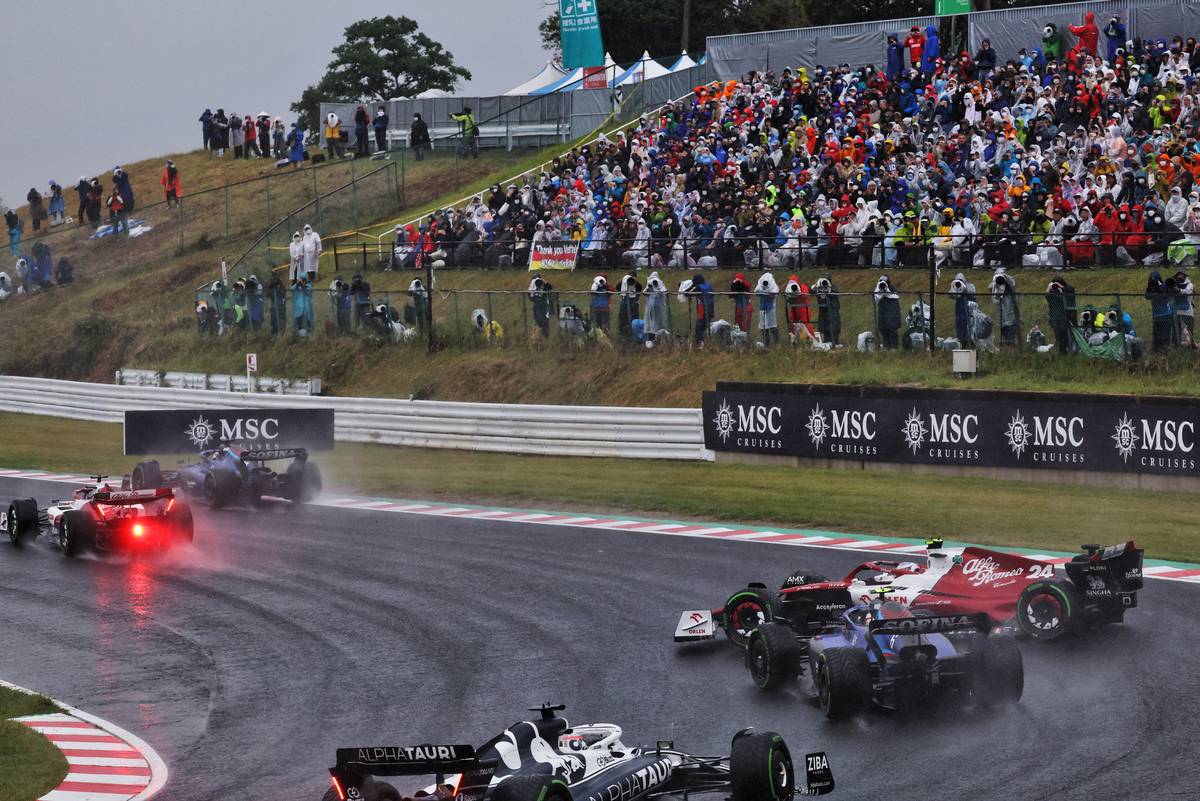
Ferrari boss Mattia Binotto suggested that a rolling start at the outset on full wet tyres would have perhaps been a more prudent approach to the elements.
"Should we have started the race standing start or should we have started behind the Safety Car?" questioned the Scuderia chief.
"At first I think behind a Safety Car would have been certainly safer, and safety should be always put at first position.
"Why I’m saying that, because as soon as we started a lot of drivers, obviously all the drivers were on intermediate tyres which were the faster but then very little grip, very little visibility.
"Maybe by starting behind the Safety Car you give at least a couple of laps to understand the situation, have the feedback from the driver before you decide to go for it."
Charles Leclerc argued that it was a difficult call because conditions had significantly worsened between the drivers' laps to the grid and the moment when the race actually started.
"The conditions changed quite a lot actually from the laps of the grid to the actual first lap," he said.
"There was much more rain, much more standing water, and the visibility especially was extremely poor. That changed pretty quickly."
Keep up to date with all the F1 news via Facebook and Twitter





